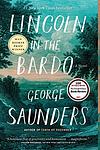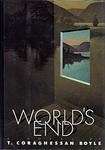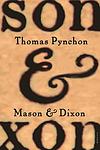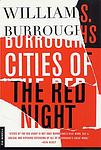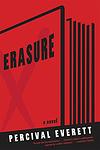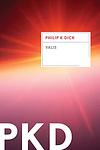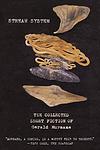The Greatest "Postmodern, Fiction" Books Since 1980
Click to learn how this list is calculated.
This list represents a comprehensive and trusted collection of the greatest books. Developed through a specialized algorithm, it brings together 300 'best of' book lists to form a definitive guide to the world's most acclaimed books. For those interested in how these books are chosen, additional details can be found on the rankings page.
Genres
Postmodernism is a literary movement that emerged in the mid-20th century, characterized by a rejection of traditional narrative structures and a focus on self-reflexivity and intertextuality. Postmodern literature often features fragmented narratives, unreliable narrators, and a blurring of the lines between reality and fiction. It is a genre that challenges the notion of a single, objective truth and instead embraces the idea of multiple perspectives and interpretations. Postmodern literature is often seen as a response to the modernist movement that preceded it, and it continues to be a popular and influential category for contemporary writers.
Countries
Date Range
Reading Statistics
Click the button below to see how many of these books you've read!
Download
If you're interested in downloading this list as a CSV file for use in a spreadsheet application, you can easily do so by clicking the button below. Please note that to ensure a manageable file size and faster download, the CSV will include details for only the first 500 books.
Download-
26. The Unconsoled by Kazuo Ishiguro
The book follows a renowned pianist who arrives in a Central European city to give a concert. However, his time there becomes increasingly surreal and disjointed as he is pulled in different directions by the demands of the locals, his own past, and his responsibilities. The narrative explores themes of memory, time, and self-delusion, creating a dream-like atmosphere that blurs the lines between reality and illusion.
-
27. The Moor's Last Sigh by Salman Rushdie
This novel follows the life of Moraes Zogoiby, the last in line of a once powerful and influential Indian family. Told from his perspective, Moraes recounts his family's history, starting with his grandparents and moving through to his own life. The narrative is filled with tales of love, betrayal, political unrest, and the supernatural. The protagonist's life is marked by a strange curse that causes him to age twice as fast as a normal human, adding a layer of urgency and tragedy to his story. The book explores themes of cultural identity, family legacy, and the passage of time.
-
28. Sixty Stories by Donald Barthelme
"Sixty Stories" is a collection of short narratives that use unconventional, experimental structures to explore a range of themes. The book is known for its absurdist and postmodern style, and the stories often feature elements of parody, surrealism, and satire. The tales cover a wide array of topics, including art, literature, philosophy, and the human condition, all presented with a unique blend of humor, wit, and intellectual depth.
-
29. Lincoln in the Bardo by George Saunders
The novel is set in a graveyard over the course of a single night and is narrated by a dazzling chorus of voices. The story is centered around the death of President Lincoln's 11-year-old son Willie, who resides in the Bardo, a transitional state between life and rebirth in Tibetan tradition. As Willie interacts with the other spirits stuck in this realm, his father visits the crypt to mourn, causing a struggle among the ghosts over the boy's soul. The narrative explores themes of grief, the impermanence of life, and the unresolved issues that keep us from moving on.
-
30. Concrete by Thomas Bernhard
The book is a darkly introspective narrative that delves into the mind of a reclusive, obsessive intellectual who is struggling to complete his scholarly work on the composer Mendelssohn. As he grapples with his own ailments and the perceived mediocrity of his surroundings, the protagonist's stream-of-consciousness monologue reveals his deep-seated anxieties, self-loathing, and profound isolation. The narrative is a relentless examination of the protagonist's psyche, showcasing his critical view of society and his own personal relationships, which are fraught with tension and dysfunction. Through this, the novel explores themes of artistic creation, intellectual elitism, and the suffocating nature of expectations and familial obligations.
-
31. Woodcutters by Thomas Bernhard
Woodcutters is a darkly humorous critique of Vienna's artistic elite. The story takes place over the course of a single evening, as the narrator attends a dinner party in honor of a recently successful actor. As the evening progresses, he reflects on the pretentiousness and hypocrisy of the guests, the mediocrity of their artistic achievements, and the tragic suicide of his former lover. The novel is a scathing indictment of the vanity and self-delusion of the artistic community.
-
32. World's End by T. C. Boyle
"World's End" is a multigenerational saga that takes place in upstate New York. The narrative alternates between the 17th century, where a Dutch estate is the setting for a brutal power struggle between a master and his rebellious servant, and the 1960s, where a young man struggles with his family's past and his own place in the world. The book explores themes of power, class, and the cyclical nature of history.
-
33. Mason & Dixon by Thomas Pynchon
"Mason & Dixon" is a postmodern historical novel which follows the story of the 18th-century British astronomers and surveyors Charles Mason and Jeremiah Dixon, who are known for the Mason-Dixon line. The novel is written in a complex, digressive style, and it includes numerous sub-plots and a wide range of themes. It explores the scientific, philosophical, and sociopolitical issues of the Enlightenment era, as well as the personal lives and friendship of the two title characters.
-
34. Kafka On The Shore by Haruki Murakami
"Kafka On The Shore" is a surreal and philosophical novel by Haruki Murakami that follows two parallel storylines. The first is that of Kafka Tamura, a 15-year-old boy who runs away from home to escape an Oedipal prophecy and searches for his missing mother and sister. The second storyline follows Nakata, an elderly man who has lost his memory but possesses the ability to communicate with cats. As their paths converge, they encounter strange and mystical events that challenge their perceptions of reality and identity. The novel explores themes of fate, free will, and the human psyche, and is a captivating and thought-provoking read.
-
35. Moon Palace by Paul Auster
"Moon Palace" tells the story of Marco Stanley Fogg, an orphaned young man in New York City who embarks on a journey of self-discovery. As he ventures into the American West and delves into his family's past, he encounters a series of adventures and misadventures that challenge his understanding of identity, love, and the very nature of reality. The novel is a complex and symbolic exploration of American mythology, weaving together themes of solitude, survival, and the pursuit of the American Dream.
-
36. Wittgenstein's Mistress by David Markson
The novel is a stream-of-consciousness narrative from the perspective of a woman who believes she is the last human on earth. She shares her thoughts, memories, and experiences in a non-linear and often confusing manner. The narrative is filled with cultural and historical references, creating a haunting and profound exploration of loneliness, memory, and the human condition.
-
37. The Clay Machine-gun by Victor Pelevin
"The Clay Machine-gun" is a surreal and complex novel that explores the nature of reality and illusion. The story is set in post-Soviet Russia and follows a protagonist who has multiple identities, including a poet in 19th-century Russia, a 20th-century psychiatric patient, and a 21st-century advertising executive. The narrative moves between these identities and realities, blurring the lines between them and creating a layered and philosophical exploration of Russian society, identity, and the human psyche.
-
38. The Anatomy Lesson by Philip Roth
The book centers on a once-successful writer who, plagued by chronic pain and unable to continue his literary work, experiences a profound identity crisis. As he grapples with his physical agony and the disintegration of his personal life, he embarks on a desperate quest for a cure and a new sense of purpose. This leads him to consider a drastic career change, which takes him on a darkly comic journey through the medical community and his own tortured psyche. The narrative delves into themes of mortality, the meaning of suffering, and the search for redemption in the face of overwhelming despair.
-
39. Cities of the Red Night: A Novel by William S. Burroughs
"Cities of the Red Night: A Novel" is a surreal, hallucinatory narrative that intertwines three storylines: an 18th-century pirate crew seeking utopia, a detective investigating a series of grotesque murders, and a pandemic causing spontaneous orgasms. The novel explores themes of homosexuality, anarchism, and the occult, using its disjointed narrative structure to challenge traditional understandings of time, space, and reality.
-
40. Mao II by Don DeLillo
"Mao II" is a novel that explores the life of a reclusive novelist who hasn't been seen in public for many years. The protagonist is drawn out of his seclusion when he becomes involved in an international crisis involving a hostage situation in Beirut. The book delves into themes of terrorism, mass culture, and the power of the written word, while examining the relationship between the individual artist and the collective society.
-
41. Celestial Harmonies by Peter Esterhazy
"Celestial Harmonies" is a historical novel that tells the story of the aristocratic Esterházy family, tracing their lineage from the late Middle Ages to the present day. The narrative is divided into two parts, with the first part featuring a series of vignettes about the family's ancestors, while the second part focuses on the experiences of the narrator's father under the Communist regime in Hungary. The novel is characterized by its intricate structure, complex themes, and lush, poetic language, offering a rich exploration of Hungarian history, family dynamics, and the human condition.
-
42. Operation Shylock by Philip Roth
In this intriguing novel, the protagonist, a famous writer, travels to Israel to cover the trial of a former Nazi war criminal. While there, he encounters a man who is his doppelgänger and who has been using his fame to promote a controversial political agenda, including the idea that Jews should abandon Israel and return to Europe. The narrative explores themes of identity, Jewish history, and the complexities of the Israeli-Palestinian conflict, all while blurring the line between fiction and reality.
-
43. Erasure by Percival Everett
This novel follows a successful African-American academic and author who, frustrated by the publishing industry's expectations and stereotypes around black literature, pens a satirical novel under a pseudonym. The novel becomes a huge success, forcing him to grapple with the unexpected consequences of his critique on the industry. He is also dealing with personal issues, including the disappearance of his sister and his mother's declining health. It's a complex exploration of identity, race, and the literary world.
-
44. Bartleby & Co by Enrique Vila-Matas
"Bartleby & Co" is a metafictional work that explores the theme of "writers of the No," authors who cease to write or never start at all. The narrator, an office worker on sick leave, uses footnotes to a nonexistent text to delve into the stories of these authors, including famous real-life figures. The book serves as a meditation on silence, refusal, and the nature of literature itself.
-
45. 1Q84 by Haruki Murakami
The novel is a complex and surreal narrative that intertwines the lives of two protagonists: a woman assassin who becomes embroiled in a mysterious and dangerous cult, and a male writer caught in a complicated love triangle. As they navigate their respective challenges, they unknowingly cross into an alternate reality, referred to as 1Q84, where the lines between fact and fiction blur. The novel explores themes of love, fate, and the power of the individual against the constraints of a conformist society.
-
46. VALIS by Philip K. Dick
The novel follows a mentally unstable man who begins to experience visions after being hit by a mysterious pink light. Convinced the light is a divine entity named VALIS, he and his friends embark on a quest to understand and communicate with it. As they delve into philosophy, religion, and science, the boundaries between reality and delusion begin to blur, leaving both the characters and the reader questioning the nature of existence.
-
47. Rituals by Cees Nooteboom
"Rituals" is a philosophical novel that explores the lives of three men, each dealing with existential crises in post-World War II Netherlands. The narrative delves into their individual searches for meaning and purpose, their struggles with societal norms, and their attempts to establish personal rituals as a way to create order in a seemingly chaotic world. The book is a profound meditation on the human condition, examining themes of time, death, and the nature of reality.
-
48. Wittgenstein's Nephew by Thomas Bernhard
"Wittgenstein's Nephew" is a semi-autobiographical novel that explores the friendship between the narrator and his friend Paul, who is the nephew of the famous philosopher Ludwig Wittgenstein. The story takes place in Vienna and is set against the backdrop of the Austrian mental health system. The novel delves into themes of sanity, insanity, and the fine line that separates the two, while also offering a critique of Austrian society. It is a meditation on the nature of illness, both physical and mental, and the impact it has on personal relationships and one's perception of the world.
-
49. Larva: Midsummer Night's Babel by Julián Ríos
"Larva: Midsummer Night's Babel" is a complex and innovative novel that explores the nature of language and the power of words. It's a narrative labyrinth that follows a group of characters through the streets of London on a midsummer night, as they engage in a series of intellectual debates and discussions. The story is filled with puns, word games, and literary references, and is written in a unique style that blends poetry and prose. The novel is also a satire of the literary world, with the characters often critiquing and parodying various literary styles and authors.
-
50. Inland by Gerald Murnane
Inland is a complex and introspective novel that explores the inner workings of the human mind and the concept of reality. The story is narrated by a man who is reflecting on his life, his relationships, and his experiences, using the vast landscapes of his native Australia as a metaphor for his inner world. The narrative is non-linear and often fragmented, reflecting the man's scattered thoughts and memories. The novel is a deep exploration of the human psyche, the nature of memory, and the power of the imagination.
Reading Statistics
Click the button below to see how many of these books you've read!
Download
If you're interested in downloading this list as a CSV file for use in a spreadsheet application, you can easily do so by clicking the button below. Please note that to ensure a manageable file size and faster download, the CSV will include details for only the first 500 books.
Download


